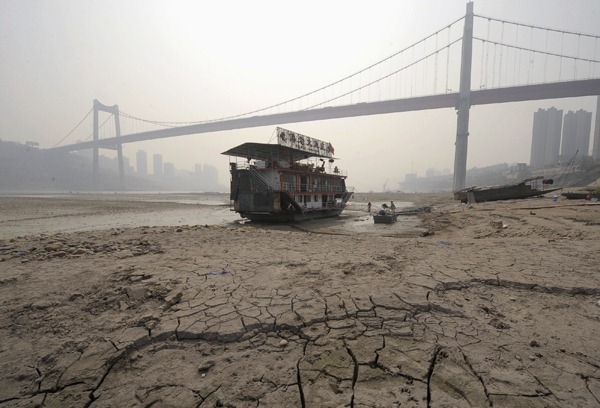The Peak Oil crisis: China’s latest drought
By Tom Whipple
Wednesday, April 14 2010 11:56 We all need to pause for a minute and consider the possible implications of the droughts that are engulfing China. One of these is in the north — Inner Mongolia, and the second more serious one covers most of southwestern China. If the weather patterns revert to normal and the May monsoons come on schedule in the next month or so, then all should be well and we, along with 60 million or so Chinese farmers, can stop worrying. But these are not normal times and even the disappearance of the El Niño in the central Pacific may not bring enough rain to mitigate the situation. Then, there could be serious trouble not only for the Chinese and southeast Asian peoples, but for the rest of us as well. There will be at least three major consequences of recurring drought conditions in southwestern China. First will be that millions of people and head of livestock will have to find a source of water or move. Gone are the days when a government could let nature take its course as millions perished. Water will have to be brought in, wells drilled or people moved to areas where the water is adequate. In China, this is always a problem for a country with 22 percent of the world’s population and only seven percent of the world’s fresh water. Next comes the food supply. So far the government’s official line is that losses will not be significant for only a few percent of the 750 million rural Chinese are heavily affected by the drought. Last winter China’s chief meteorologist warned, however, that two years of drought would be a disaster for China which would be unlikely to be able to import sufficient food from abroad. A country sitting on $2.4 trillion in foreign exchange cannot sit by and let people starve. Should Beijing attempt to buy its way out of food shortages, world food prices would move sharply higher. …
The Peak Oil Crisis: China’s Latest Drought via The Oil Drum
